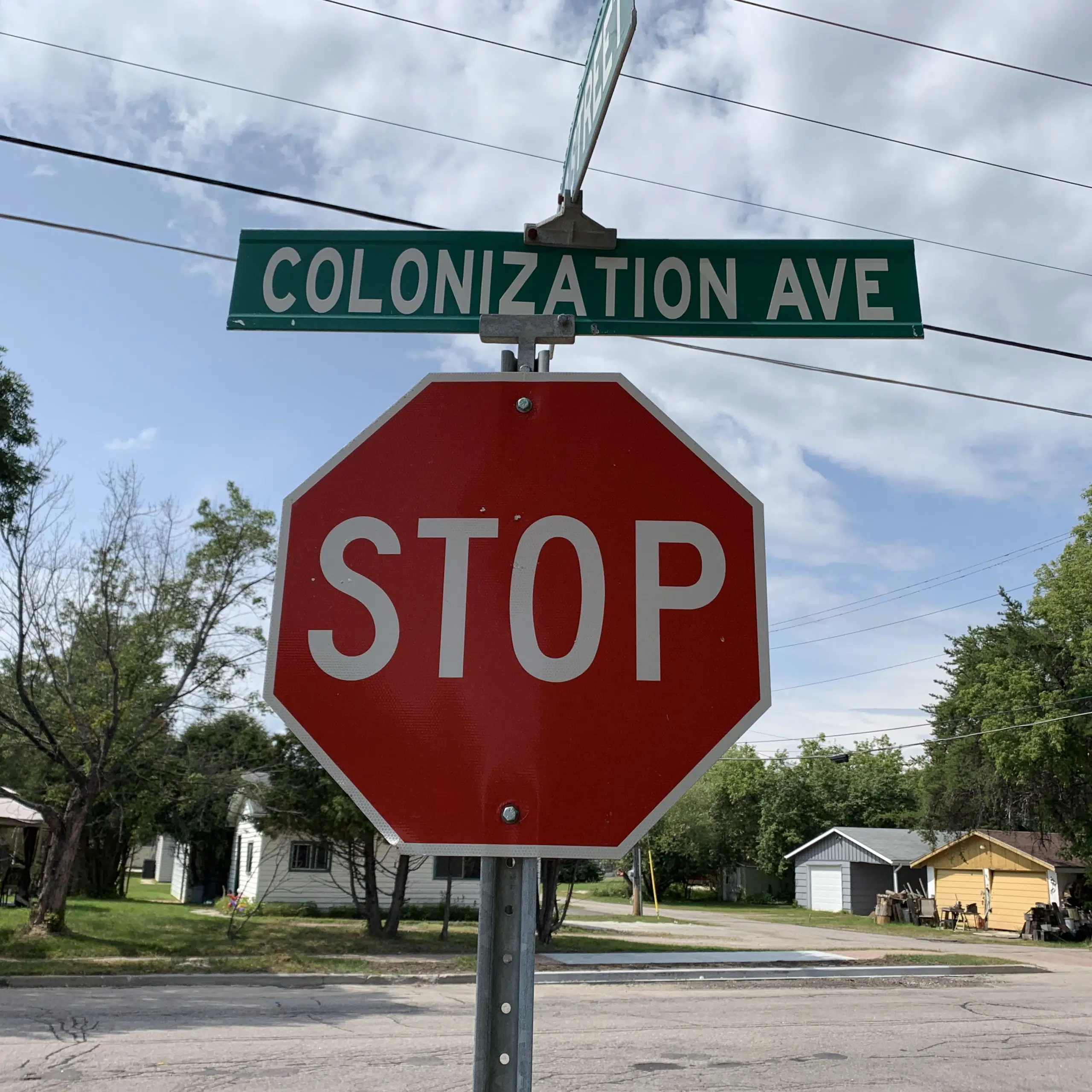
Dryden Council has confirmed its intention to rename Colonization Avenue.
The decision was made Monday night following a request from the newly formed Working Circle.
The next step will be seeking public input over a 60 day period once it is formally approved by Council.
A presentation was made by Working Circle members Shayne MacKinnon and Cheryl Edwards.
It included video testimonials from residents, businesses and high-profile figures in the community that fully support the name change and moving ahead with reconciliation.
Edwards talked about the history of the name Colonization Avenue and its constant negative reminder of past atrocities.
That includes the Residential School legacy, the 60’s Scoop and other events that took away Indigenous language and culture.
MacKinnon says the City strategic plan talks about being an inclusive community with an exceptional quality of life with a goal to foster positive relationships with Indigenous peoples and area First Nations.
He stresses physical changes would go a long way in reconciliation efforts and will show Dryden will not stand for racism.
The Working Circle will be responsible for the presentation of three names for Council to consider Council.
MacKinnon stresses they will be seeking public input on potential names, Indigenous or not, and will also be seeking potential names from schools and seniors.
He adds the Working Circle will be immediately educating the community and residents along Colonization Avenue through mailouts, information packages, references, and a social media campaign.
A virtual public meeting is also planned to discuss the potential name change.
MacKinnon says the costs will be minimal and believes they can piggyback on existing City resources.
The Working Circle is hoping for a Council decision in April as well as a potential new name on June 21 on Indigenous Peoples Day.
MacKinnon notes if Council decides to proceed with the name change, they will assist impacted residents in the transition.
That would include the creation of a Help Line to assist residents with needed changes.
Council says examining the name Colonization Avenue and considering changes is part of their strategic goals and aligns with the mandate of the Working Circle to foster better relations.
Chief Administrative Officer Roger Nesbitt says “The strategic plan. Promote and strengthen our relationships with Indigenous people. Having Colonization used in a Municipal asset name really does not promote achieving those goals and it really does not promote moving reconciliation efforts ahead in this community.”
Michelle Price says now is the time for change and believes Dryden can be a leader in reconciliation.
Price and others are encouraging the public to learn more about the negative connotations of the name Colonization Avenue.
You can find out more by visiting www.dryden.ca/workingcircle
Roger Nesbitt adds “I encourage the public to go and read through it. To watch the videos. And to really put yourself into somebody else’s shoes and look at this recommendation through another perspective. And I think when individuals do that, this will make a lot of sense.”
Dryden Working Group pamphlets include two messages:
What is in a Name?
Colonization means “the action or process of settling among and establishing control over the indigenous people of an area and appropriating a place for one’s own use.” Colonization Avenue was named a long time ago as part of establishing Dryden as a community. It is a hurtful reminder of the negative effects of colonization to many Indigenous and Non-Indigenous Peoples who visit or live in and a round our community. These negative effects include the legacy of residential schools and segregation. Colonization Avenue/Road played a significant role in the development of Dryden as we know it today. It provided access to Wainwright Township to the North and VanHorne Township to the South. If not the first road in Dryden, it was one of the first roads in Dryden, allowing access to resources and the settlement or colonization to happen. A street name should be something we all take pride in, as we do our greater community. For too many, Colonization Ave is a daily reminder of a dark stain in Canadian history and of past injustices that stand in the way of making all people feel like an important part of the fabric of our community.
Why make a change now?
Renaming a street is an action that moves us closer to reconciliation. There is no better time to work towards reconciliation and right an injustice than now. Movements like “Idle No More” and “Black Lives Matter” have demonstrated that people are tired of pain and trauma and want to move forward. These movements have been a reminder that we all need to recognize prejudices and come together to build stronger relationships.



